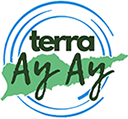In St. Croix, the Terra Ay Ay project is collecting unbiased, community-sourced data on air, water, and soil quality. By making this data publicly available, Terra Ay Ay empowers residents to make informed decisions about their health and environment.
A key component of the project is its educational focus, training students to collect and test cistern water samples, then analyze the results to better understand the impacts of environmental health and to engage in dialog on common practices for mitigating risk. In collaboration with our partners from the University of the Virgin Islands and dedicated high school teachers, students are engaged in hands-on laboratory experience for testing Total Coliform and E. Coli in local cistern water samples. This not only builds their scientific skills but also strengthens the community’s capacity to advocate for environmental justice and health. Through this initiative the Terra Ay Ay Project is helping to equip the next generation with tools they need to protect their environment and health.
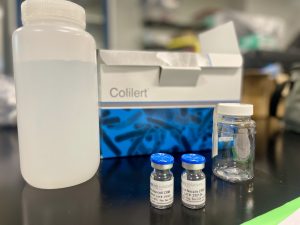
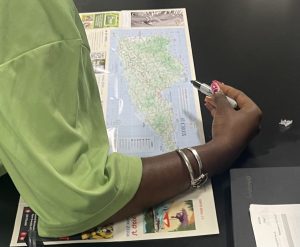
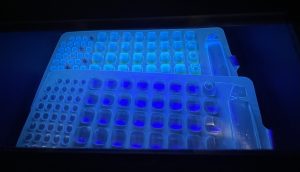
What are we testing in the UVI lab?
Total coliform & e coli.
“Coliforms are a large group of bacteria that are present throughout the environment. They are in the soil, on plants, and waters. Certain coliforms, called fecal coliform, live in the guts and waste of animals and humans. Escherichia coli or E. coli is a specific species of coliform bacteria. E. coli is a concern because some types of E. coli can cause illness in humans.” –https://www.maine.gov/dhhs/mecdc/environmental-health/dwp/pws/totalColiform.shtml

(image source: https://www.maine.gov/dhhs/mecdc/environmental-health/dwp/pws/totalColiform.shtml)
E coli. is the only group of total coliform not generally found growing and reproducing in the environment e coli has therefore been considered the best indicator of fecal pollution and potential health affecting pathogens. (1)
These pathogens can lead to serious health issues like diarrhea, vomiting, and even severe infections. Children under five years of age and those with compromised immune systems, and the elderly are particularly susceptible.(2)
The safe drinking water standard is that there should be fewer than one colony-forming unit of total coliform per 100 ml of water (>1 /100mL) meaning these bacteria should not be present in drinking water at all.(3)
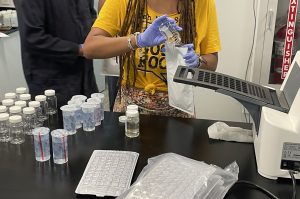
The Terra Ay Ay Project will be conducting this cistern water bacteria testing for free through the remainder of 2024 (limited testing available – first come, first served)
>>>> To volunteer your cistern water for testing fill out this form: https://forms.gle/ouY5bUKJfSnvdyBw9
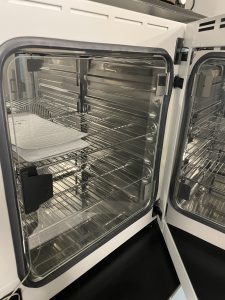
The results of the testing conducted for the Terra Ay Ay Project will be published on our website, once testing is completed. These reports will only show the estate location of the water sample collection site – participating residents’ information will be kept anonymous.
Tests that confirm the presence or absence of total coliform can be purchased online and used to test your water in-home. There are also local and continental EPA certified laboratories that can be hired to perform residential drinking water analyses for harmful contaminants and chemicals.
As private water collection is not regulated by any government entities it can be difficult to know which of the many treatment methods are best for human and environmental health. DPNR and EPA recently published a Comprehensive Guide on Your Health and Cisterns, in the USVI, which you can reference here: https://dpnr.vi.gov/wp-content/uploads/2024/07/USVI-YourHealthandCisterns_-FinalTechGuide_Feb-22.pdf
The USVI Department of Health conducted a cistern water study in 2019 which you can read here: https://doh.vi.gov/pantheon/CisternWater_OutreachDocument2019%20v5.pdf
___________________________________
(2)Source: https://www.maine.gov/dhhs/mecdc/environmental-health/dwp/pws/totalColiform.shtml
(3)Source: https://www.knowyourh2o.com/indoor-6/total-coliform-bacteria
